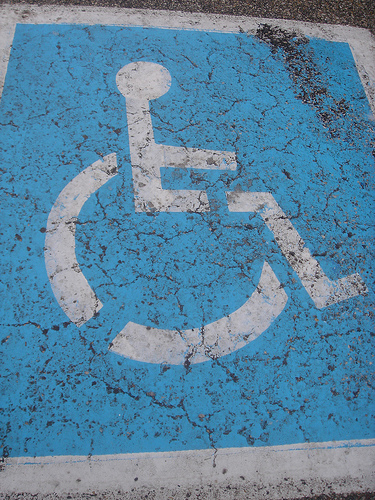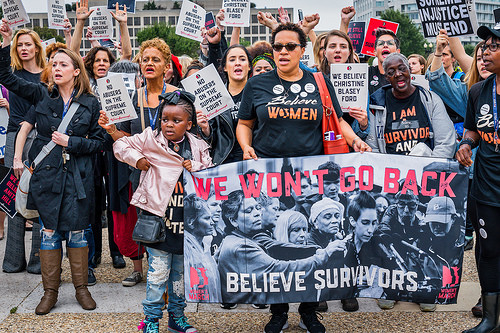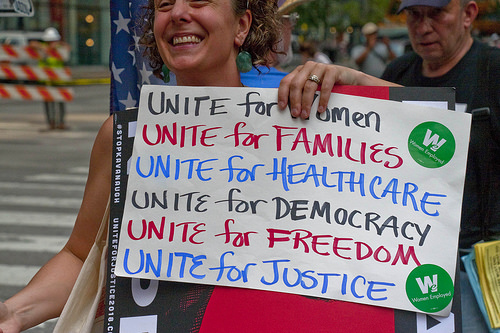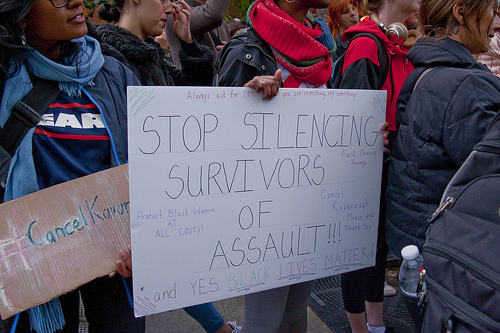
A few years back, I woke up, looked at my arm, and thought I was in a nightmare. My arms were covered in rashes of tattoo-dark blood blisters so thick my skin looked burgundy-purple from a distance, and bruises, the flesh so swollen it looked like I had been in a car wreck. I had not done anything out of the ordinary, not been beaten up, not survived a new trauma.
It was the most obvious symptom of what would later be diagnosed as an immune disorder. The other symptoms were invisible but devastating—among them, noncancerous growths in both lungs large enough to require a surgical biopsy, and having to relearn how to breathe. My platelets dropped to levels that saw me restricted to cancer treatment wards, experimental medications and bed rest, and a never-ending hell of side effects. The only potential explanation was that this immune disorder could be causing my body to kill my platelets, removing my blood’s ability to clot.
Without platelets, you struggle to get enough oxygen. For a while, I even spent time on oxygen tanks. Without platelets, you’re a “bleeding risk.” You bruise. Sometimes you bleed spontaneously—internal bleeding, swollen limbs, bloody noses that soak towels and can’t be stopped outside a hospital. You can die from a bloody nose if it can’t be cauterized in time. The underlying immune disorder also removes my ability to respond to vaccines, rendering me vulnerable to preventable illnesses.
The good news is, with ongoing access to a medication derived from healthy people’s immunoglobulin, I can see the same long life as others. That’s a whole other discussion about ethics under capitalism in and of itself, because that immunoglobulin sure ain’t coming from rich people, is it?
The bad news is that without insurance this medication costs as much as some types of cancer treatment, and I’ll require it for the rest of my life. In the time between medication doses, my body chews through the donor immunoglobulin, as well as my own blood’s existing components.
In the scope of weeks, months at best, I go from healthy to on the verge of death, platelets dropping, sometimes by 2/3 in the scope of a day. In the course of diagnosis, I spent periods checking into the hospital every two weeks as my blood nosedived to a platelet level so dire that, at times, my doctors thought their machines had malfunctioned and were simply failing to count my blood’s components properly, because how the hell could I be alive otherwise? I was the youngest adult in the cancer wards, the mystery patient doctors came from other floors to see because my case was just THAT strange.
I was uninsurable prior to the Affordable Care Act, even without this diagnosis. My docs claimed I’d grow out of my irregular, heavy, unnervingly painful menstrual cycles, that they were nothing to be concerned about, yet the insurance companies claimed I had “an undiagnosed uterine disorder” and refused to cover me entirely. It turned out they were right about that disorder, ironically enough. After the endometriosis got bad enough to become disabling due to medical neglect, I finally got a diagnosis. I was disabled before my immune disorder ever happened.
Being able to get covered through the ACA was a turning point.
And if I had still been limping along without coverage when my immune system went into free fall, point-blank, I would be dead. Lack of coverage led to my deterioration and my medical inability to work to this day. But it would have led to my death if it had gone on just three years longer. Without full coverage that handled almost everything—blood tests sometimes daily, expensive medications, hospital stays, a dozen specialists, outside consults, extensive imaging, multiple surgeries, an ungodly amount of medications—I would have died during one of those blood drops, when I had 1/150th the minimum platelets of a healthy person.
I tell you this so you can understand how it’s all connected. How one denial, one interruption of coverage, one financial bad break, can cause a failure cascade that results in an individual’s life becoming a mire of sickness, struggle, medical neglect, and decay. For countless Americans, it leads to financial ruin.
For chronically ill and disabled people who do sex work in order to work around their conditions, doing criminalized, grey market, or informal labor without benefits means we often have no access to insurance without the ACA. Employer-based health insurance is now and has always been a leash on workers to keep us beholden to more powerful employers. The ACA was a first step away from that and empowered all workers, regardless of employment status. This is crucial in a “gig economy” of Uber drivers and independent contractors, people with standing not so different than my standing was as a stripper. A nation without the ACA is one in which many of us will die of illness and poverty.
This is the country that we are in danger of returning to if Brett Kavanaugh becomes the newest associate justice on our Supreme Court.

It is a country that many still live in, with so many states refusing to accept the ACA’s subsidies for Medicaid expansions. The threat of more repeal attempts are on the horizon if Republicans maintain their majorities in midterms. A bill making the tax cuts for the rich included in last year’s tax reform bill permanent has passed the House, which would further add to the deficit and require further cuts to the social safety net.
There have been multiple cases related to the ACA in the courts and more still working their way through. Brett Kavanaugh has been carefully chosen for his conservative bona fides, during a time when a massive part of Republican political strategy has been stacking the courts with conservative judges who will enact their own brand of justice, treating their brand of judicial activism as the only “impartial” one. We would have to be Susan Collins daydreaming about Roe’s future to believe that Kavanaugh will be genuinely willing to protect the ACA, and I doubt even she believes those magic beans she’s selling.
Sick and disabled people already die daily of medical neglect, while waiting for our applications for financial assistance to be approved as the able-bodied demand we perform disability to their satisfaction.
Meanwhile, politicians grandstand with our lives. (Check out how John McCain suggested his constituents just “move” out of state to have a chance of receiving the exact same treatments he would later receive on the taxpayers’ dime.) They posture even as we ask ourselves whether we truly count as “disabled enough,” after a lifetime of seeing representations of disabled people which only depict the most extreme impressions of disability or chronic illness.
All of this stands to be complicated by Kavanaugh’s presence on the court. This is a man who holds up his mentorship of disabled people to excuse his alleged sexual predations while failing to reckon with his condescension and inability to understand us as fully-fledged people and citizens.
All of this stands to be made worse by Kavanaugh’s jurisprudence, and that of the party sponsoring him.
For sick and disabled people, it’s particularly acute, because for us, the likelihood of seeing harm is not an existential “maybe.” We can’t legally immigrate to most other countries with good health care. And without affordable access to full medical care to quickly diagnose and treat any conditions which may develop, as well as the older ones that need management, many people will lose access to existing work. They’ll be unable to sustain their families, be forced to take on more dangerous work and work harder and to the point of injury, and see their health deteriorate on top of the damage caused by medical neglect. And that’s if you aren’t a patient like me whose illnesses manifest as life-threatening medical failures.
“Just go to Canada” is a particularly chilling dismissal when leveled at a sick or disabled person frightened for their future in this political climate. Especially when you’re a current or former sex worker whose criminal record or old Eros ads will likely get you stopped at borders.
Many of us end up in sex work precisely because of our inability to work in conventional settings due to our disability. And we will only become more vulnerable to exploitation if the clock turns back and we see a deluge of GoFundMes for sick or disabled people suddenly pushed away from resources by a newly-overhauled court with Kavanaugh in it. This makes all of us more vulnerable—whether to various forms of labor exploitation, trafficking, deaths of despair, or police brutality—all the real American carnage which half of our country normalizes as “the way of things.”
It’s also worth considering that even beyond Kavanaugh’s own views, we must consider the views of those around him, in case he is beholden to other interests. Between a host of debt that went away under suspicious circumstances, his ties to conservative groups such as the Federalist Society and the Heritage Foundation that put him on President Trump’s radar, and the clear partisan bias he displayed at the hearings last week, many suspect that he is susceptible to influence. And that’s not even considering the likelihood of someone acquiring potential blackmail-worthy materials such as impeachable proof of the allegations against him or proof of perjury regarding his testimony on his drinking, or any of his other statements to Congress during his confirmation to the DC Court of Appeals or these hearings for his confirmation to the Supreme Court. What little we know of his views is repugnant—but it’s worth considering that what we see may not be what we get, and there may simply be no way of knowing if he’s compromised.
Because of the people supporting Kavanaugh’s nomination, the lives of people like me are at best hostage, at worst, already collateral damage.

How can we suggest that Kavanaugh does respect the sick and disabled when in a prior ruling (Doe Tarlow v. District of Columbia), he ruled that it should be constitutional to subject disabled women to procedures without attempting to ascertain their medical consent—including, in a hypocritical twist, abortions. Plural.
Disrespect for the autonomy and safety of disabled people cannot be separated from the plethora of issues with Kavanaugh’s nomination. Not when disabled people experience sexual assault at rates twice as high as the general population, four times as high if you compare cis disabled women to non-disabled cis women.
How can we take his views on disabled bodies as undeserving of autonomy or protection as separate from his views on women, when he has allegedly treated women with the same willingness to dehumanize?
How can we trust Kavanaugh to understand and advocate for us, all of us disabled people, regardless of race and gender, when he believes some programs for Indigenous people are on dubious constitutional ground? Fuck you, disabled native Alaskans and Hawaiians—hope sex work treats you kindly if he rules to strip your support systems of their legitimacy, despite the additional risks you’ll face compared to white sex workers! Let alone any further complications you may encounter due to the high correlation between chronic health problems and adverse childhood experiences. Many communities with the least access to support are the most likely to see members with health issues related to past trauma.
How can we not take his views on disability into account, considering that he reversed a settlement against an off-duty cop who shot and killed a black dental student, while on the DC Court of Appeals (Hundley v. District of Columbia), and disabled people are another group disproportionately likely to be targeted for police brutality, as well as people of color?
This is also worth considering in context of Kavanaugh’s racist quips about a fictitious Asian sex worker, “Su Ching.” In emails sent while he was part of the Bush administration, Kavanaugh jokingly alluded to his companions preferring “Su Ching” to be a “rub-n-tug hostess.” He told them they would no doubt be disappointed to discover that it was the boat on which they would be gathering, though he wisecracked that they should not tell each other’s spouses about what would happen at that party either way. These throw-away lines are especially callous for a judge who will surely hear cases involving the groups to which “Su Ching” would belong if she was a real person.
As sex workers, we also must be concerned about the racism and hypocrisy of the “Su Ching” emails. Will Kavanaugh uphold laws like FOSTA that his party almost unanimously supports, considering woman like the fictitious “Su Ching” unequivocal “victims” despite his jokes about participating in their victimization? Obviously, the perception that any vaguely East Asian-sounding name must belong to a sex worker is racist as hell, and unbecoming in a Supreme Court Justice. But the implications of the joke itself are critical for a man who will be expected to rule on the legal rights of sex workers, sex trafficking victims, immigrants, and racial minorities. How can we claim he respects any of these groups? This is doubly appalling considering the stereotypes surrounding Asian sex workers are used to fuel violence against not only against them, but all sex workers, powering anti-trafficking campaigns, law enforcement stings, End Demand-inflected policies, and even ending in the deaths of sex workers like Yang Song.
Especially for us as sex workers, this is worth concern, since we too are targeted by police violence and attacks from others at higher rates, with fewer repercussions. Kavanaugh’s ruling on the Hundley case and his casual jokes about Su Ching may indicate the kind of treatment that those at the most risk of police brutality—such as racial minorities and sex workers—could face if their case rises to a Supreme Court he is seated on.
How can disability not affect the impact of Kavanaugh’s seat on the court, when disabled people face so many difficulties in speaking out through protest? Protests are often inaccessible, our mobility aids can be seen as weapons by cops, and our safety at contentious marches is compromised since we can be more easily separated and picked off in our wheelchairs due to long march routes with non-curb-cut curbs. If we must wear facial masks for allergies or protection, we may be subject to additional persecution, due to police seeking to weaponize laws against masks originally intended to prosecute the Ku Klux Klan.
How can disability not affect our rates of violence and victimization, when defending ourselves may leave us prone to worse injuries than an able-bodied survivor facing a similar attack? The #survivedandpunished hashtag for those who defended themselves from assault only to be incarcerated for it is disproportionately filled with women, particularly women of color, particularly women living with intellectual or developmental disabilities, mental illnesses, PTSD and trauma. Disabled people, particularly disabled PoC, are especially at risk of violence or murder at the hands of cops.

Disabled trans people face even more barriers to care, as the existence of mental illness may be used to discredit feelings of dysphoria, leading cis doctors to refuse to assist a trans person in their choice to medically transition.
Prisons are disproportionately filled with people experiencing the results of trauma and chronic illness, and the courts are crucial in determining access to care. The Trump administration has shown itself to be a strong enemy of trans rights. With Kavanaugh in the highest court, and the likelihood that a number of the protections the ACA provides will be withdrawn, these barriers only stand to become steeper.
Every aspect of our lives is touched by our marginalized identities. Disabled people and sex workers are no different—and we belong to every other axis of marginalization out there.
We multiply marginalized people are the much cited canaries in the coalmine. What is done to us is a precursor to what can be done to others. For example, the frequent drugging of “unruly” migrant kids separated from their families is a tactic long seen among communities fractured by Child Protective Services, the foster care system, and mass incarceration, where kids removed from their existing social support systems and families are at a much increased risk of being treated with inflated regimens of psychiatric drugs not developed for or extensively tested on young bodies.
There aren’t words for that kind of trauma. As sex workers under criminalization, we live with the kinds of fear that would send most people into fetal balls. And that’s not counting whatever other traumas or marginalizations we may also have. So many groups with disproportionate representation in the sex worker community have their own experiences with that fear. And that’s where all these groups don’t intersect—reminder that there are plenty of disabled trans people, disabled POC, disabled trans POC, etc. White cis people like me may make ourselves the smiling face of the disabled community, as we do in most movements, but we’re far from the complete picture.
This is the kind of fear that the disabled and chronically ill community is confronting, a fear which only grows. We fear that we are facing a silent genocide, where we are seen as “acceptable losses” expected to hold our grief for impending deaths of medical neglect, even as others rally around the cause of Roe v.Wade and Dr. Ford and other more “respectable” survivors of sexual violence.
Too many of the people I know whose health requires ongoing treatment are preparing for the worst. If you happen to have a minor diagnosis affecting an organ system that a new bill put forward in Congress will allow your ACA coverage to exclude, then the developments of this political moment affect you. That bill’s passage may mean that future worsening medical complications in that organ system won’t be caught or treated before they kill you, if you can’t pay out of pocket. If you have a major diagnosis that your insurance company doesn’t want to pay for, keep your eye on Congress and the Supreme Court—this affects you. If you have good coverage now, but one lapse or lost job could result in you being unable to obtain similar coverage again, this affects you.
If even one of the threats looming against us is actualized—the new bill that would allow your insurance company to exclude portions of your coverage, the future ACA repeal attempts, the court cases being litigated to erode patient coverage, the cases that may still be appealed—people you know will die. People you know may turn to sex work in less-than-ideal situations, without the skills to do it as safely as possible. These developments are especially dire in the context of of new laws like SESTA/FOSTA, which criminalize our ability to educate new members of our community and help them protect themselves.
This is all happening while proposed laws seek to curtail the ways we can protest law enforcement, which would disproportionately affect many communities represented among sex workers as well as sex workers themselves. If it is a crime to speak out against the cops, then anger against predatory cops is less legitimate than anger toward other predators. In this environment, would we be able to see the same outpouring of anger that led to Daniel Holtzclaw’s conviction? Or are we likely to see an emboldening of violent law enforcement, such as the recent Border Patrol serial killer who took four sex workers’ lives? Will cops who murder and assault sex workers and other marginalized people now feel untouchable, drunk on a heady punch of racism and idolization?
In the context of these threats, Kavanaugh’s confirmation on the court is something that no marginalized person can afford.

I spent last week working on my will with the expectation that at some point in the next five years, I will lose access to my meds, and within a year of that, my health will deteriorate. When that happens, I will not wreck my family’s future begging for more money for another month. The uncertainty I’d be living with and the knowledge that I’m forcing my loved ones to take a poison pill would ruin any gain I might get from the additional time with my family. When that time comes, I’ll take an ugly death-by-hemorrhage, or death-by-vaccine-preventable-illness, or death-by-aneurysm, so that they can have the best future they can.
Others may feel differently, but in this shitty situation, that’s the choice that feels best for me, at least at this moment. But I simply can not express the surreality of it. I’m working on my will in one tab, with my senator’s page open in another, so I can tell her staffer over the phone exactly what it’s like being in this position. I’ve made interns cry, something that feels more than a little unfair, considering that it’s their employers who deserve to weep for the consequences of their feckless actions.
I wish it was Kavanaugh who was crying, and not those crocodile tears he treated us to in his mendacious opening statement last Thursday.
At every turn, he has ruled against women’s autonomy, against disabled people’s autonomy. He has used disabled people as shields to deflect questions about his respect for women’s safety. He has perjured himself repeatedly, hidden the worst of his partisan behavior to lull the public into a false sense of security—at least until the mask came off at last Thursday’s hearing.
Those of us whose lives depend on his largesse simply cannot be taken in. If seated, Kavanaugh will rule as his masters desire.
Check, and mate.
Wow… Really a great piece of content.
I know this, my neighbor had a similar situation. We must rely only on ourselves. Other people’s problems are of no interest to anyone.